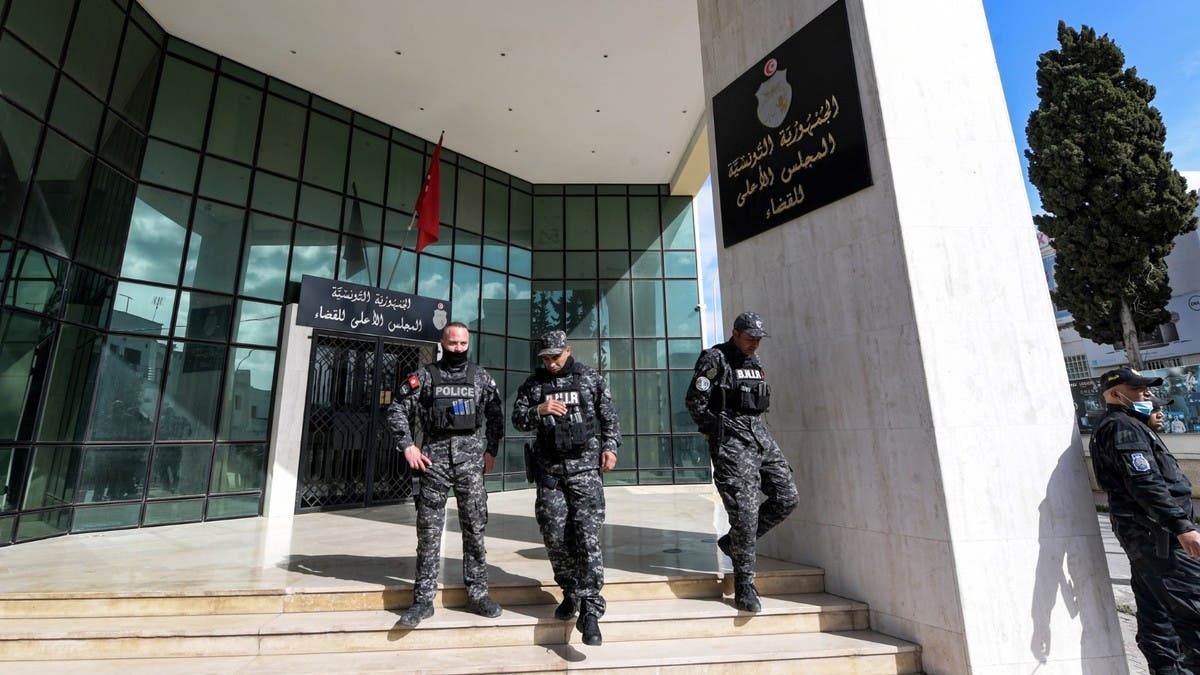President Kais Saied's move to dissolve Tunisia's top judicial authority has triggered a critical confrontation over rule of law and his own accountability as he slides further towards one-man rule.
Saied, who suspended parliament and seized executive power last summer in moves his foes called a coup, has for months been attacking the judiciary as part of a corrupt, self-serving elite that disdains ordinary people to protect its own interests.
In a late-night speech this weekend – using his now-familiar refrain that “purifying the judiciary is a priority” – he said he would dissolve the Supreme Judicial Council, the body that upholds judges' independence, triggering a furious reaction.
For the latest headlines, follow our Google News channel online or via the app.
Judges associations, civil society groups, opposition parties, rights groups, Western donors and UN agencies have all criticised his move, warning it undermines the last vestiges of official accountability for Saied.
Many judges are also protesting, partially shutting down the justice system on Wednesday and Thursday, planning a street demonstration and seeking to rally support from civil society groups.
“The judiciary is the only guarantee left in this emergency period in which the president holds executive power before a people who have no power,” said Raoudha Karafi, honorary president of the Judges Association.
Saied presents himself as a reformer out to end the decade of stagnation since Tunisia's 2011 revolution that brought democracy by remaking the country's political system and purging its leadership.
He has promised to uphold rights and freedoms but has moved closer to the security services. Critics say he has pushed for the prosecution of some political opponents over accusations of corruption.
Rights groups fear that dissolving the Supreme Judicial Council, which he announced in a late-night speech at the Interior Ministry, could represent the precursor to a more thorough crackdown on dissent.
“There have been increasing attempts to stifle dissent, including through harassment of civil society actors,” said UN Human Rights Commissioner Michelle Bachelet in a statement on Tuesday.
Opposition
So far, domestic opposition to Saied has been divided and limp. The biggest political party, the moderate Islamist Ennahda, has made many enemies over the past decade including other groups that also now oppose the president.
The powerful labour union agrees with Saied that Tunisia needs radical change and that the previous system was not working properly, but it is frustrated that he will not work with it.
It is possible that Saied's decision to go after the judiciary may convince more civil society groups to mobilise against him. Supreme Judicial Council head Youssef Bouzakher has warned that judges “will not be silent”.
However, the judiciary is not broadly popular in Tunisia. Many people associate it with the administrative dysfunction of the past decade of democracy and failures to root out corruption or bring to justice those responsible for past abuses.
Abd Enaceur Aouini, a member of a legal committee formed to uncover the truth behind the 2013 assassination of the secular politician Chokri Belaid, says judges have shielded conspirators to the killing for political reasons.
“The Supreme Judicial Council is a beautiful front for selling rotten goods,” he said.
University professor Salah Eddine Daoudi, an activist who supports Saied, said there was popular support to reform the judiciary. “Talk about dictatorship or the accumulation of power is the speech of those who do not want reform,” he said.
Read more:
Tunisian president dissolves Supreme Judicial Council
Tunisian police lock doors of Supreme Judicial Council offices
Tunisian judges say dissolving judicial council is a dangerous retreat

 World3 years ago
World3 years ago
 World3 years ago
World3 years ago
 Business11 months ago
Business11 months ago
 Entertainment7 years ago
Entertainment7 years ago
 World7 years ago
World7 years ago
 Entertainment7 years ago
Entertainment7 years ago






